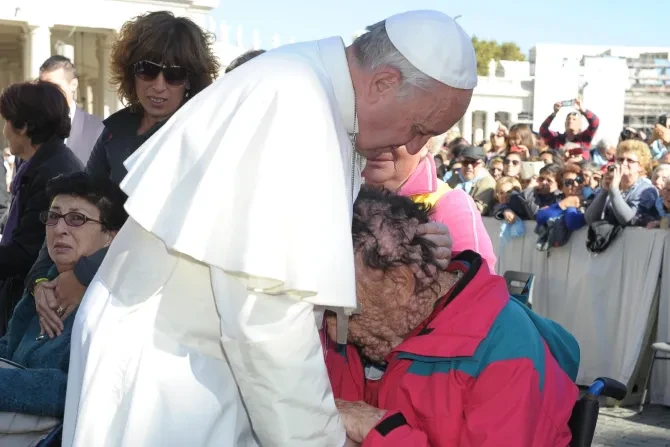April 25th, 2025
(last modified on April 26th, 2025)
Gaudete et Exsultate blog series: Introduction

Recently, I've been trying to get back into the habit of regular quiet individual prayer. (To be clear, I have found this easier said than done - for most of my life, prayer has been a constant struggle against distraction, self-criticism, and self-doubt.)
Separately, once I heard about Pope Francis' recent passing, I knew I wanted to read or re-read one of his writings, to honor him and aid in praying for his soul and the Church as our leaders pick a new Pope.
After looking at the Pope's works, I've decided to read Gaudete et Exsultate, on the call to holiness. This seems like it is not too heady and is fairly short (I thought about reading Amoris Laetitia but it seems much longer). That said, I know that even a shorter work may be a challenge (my son is about to start Little League, adding even more to our already full plate). As an extra incentive to finish what I've started, I'm going to blog along with what I read here. I'll give myself grace to take longer if necessary, but my plan is to post once per weekend until I've finished.
The Plan
Gaudete et Exsultate has 5 chapters:
- The Call to Holiness
- Two Subtle Enemies of Holiness
- In the Light of the Master
- Signs of Holiness in Today's World
- Spiritual Combat, Vigilance and Discernment
My understanding is that Chapter 2 is more controversial and has been a stumbling block to some readers, as it seemed to partake in some of the controversies with which Pope Francis was engaged within the Church. I am not going to skip it, but I intend to read it last. That way, I can make sure I don't get sidetracked by controversy and miss out on insights that are part of the core of the message about holiness.
If you're reading this and you'd like to read along with me, here's the plan.
- May 2-4: Finish reading and post about Chapter 1
- May 9-11: Chapter 3
- May 16-18: Chapter 4
- May 23-25: Chapter 5
- May 30-June 1: Circle back to Chapter 2
- June 6-8: My overall reflections
Each post may mostly be highlights from the text that stood out, and I might also share about other writings it reminded me of or personal anecdotes. We'll see if any come to mind.
What I hope to learn
First and foremost, I want to pray along with the Pope's text. I would like to see what God wants to say to me.
I also want specifically to reflect on how I can move beyond "balancing" holiness against other things in my life. Although prayer is an important part of holiness, holiness isn't a chore like doing the dishes or making sure I earn a living. Pope Francis says early on:
At its core, holiness is experiencing, in union with Christ, the mysteries of his life. (20)
So I want to not just reflect on what holiness is, but reflect on who God is - to ask God for a deeper relationship and a relationship that bears much fruit.
I recently read an article in Public Discourse that may help say what I am trying to say better or in a different way:
More recently, Catholics have gotten into the game, building lifestyle apps aimed at helping users pray, build virtue, and grow in their spiritual lives. While such apps can look like content-delivery mechanisms, their form shapes users’ understanding and experience in subtle ways. The apps are here to stay, and they genuinely help overstimulated users to regain control over their lives. The danger, I will argue, occurs when control reaches its limit as a goal for spiritual life.
...
What these apps cannot prepare us for is the unexpected—the moments when God reaches into our lives to challenge us in ways we could not have imagined. Exodus 90 is inspired by the Book of Exodus, and our understanding of Exodus is shaped by its end: we know that God will lead the Israelites to the promised land. But the Israelites did not know this, and our familiarity with the book can lead us to overlook how deeply invested it is in God’s surprises. Repetition dulls the weirdness of the burning bush, the dread of the river turned to blood, the despair of the Israelites on the shore before God parts the sea to save them. We live our spiritual lives through the mystery that Exodus records, and so much of Christian spiritual life entails responding when God does something wildly unexpected.
I am, like the author, attracted to habit and repetition and able to use these to good end often enough. But I think Pope Francis will invite me into an encounter with God, in all his mysterious, unpredictable and challenging depths - and I think he'll offer comfort that such a relationship is within my grasp as a regular dude.
Sincerely,
David Smedberg